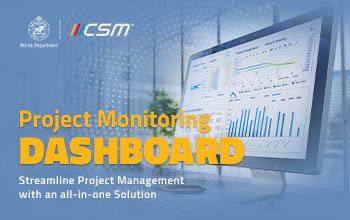.jpg)
Globally, cooperative societies have played a pivotal role in socioeconomic development. As a result of these organizations, the interests of people with common goals are brought together, their resources are pooled, and they can collectively pursue their goals. Leland Stanford, the founder of Stanford University, once said: “Each cooperative institution will become a school of business in which each member will acquire a knowledge of the laws of trade and commerce.”
To illustrate, the Primary Agricultural Cooperative Societies (PACS) have been at the forefront of social and economic renaissance in India. They have played a significant role in building the capacity of farmers by pooling their resources and educating them on agricultural best practices. Beyond agriculture, PACS have fostered financial inclusion in rural areas and mainstreamed the participation of women and marginalized groups in economic activities.
Need for Cooperative Management Information Systems (CMIS)
As the ambit of cooperatives has widened over the years, Cooperative Management Information Systems (CMIS) have become essential tools for managing operations, enhancing collaboration, and driving organizational efficiency. By leveraging technology, these systems streamline data management, facilitate communication among cooperative members, and support decision-making.
What are The Benefits?
Enhanced Communication and Collaboration:
Besides improving information sharing and interaction among cooperative members, CMISs provide a digital platform for communication and collaboration.
Streamlined Process Automation and Efficiency:
The CMIS automates various processes within a cooperative organization, including member registration, inventory management, and financial transactions.
Improved Decision-Making and Strategic Planning:
Using real-time data and advanced analytics enables cooperative organizations to make informed decisions and develop effective strategic plans.
Data Security:
To protect sensitive member information and financial data, CMIS employs robust security measures. As a result, unauthorized access and data breaches are prevented.
Scalability:
Due to its scalability, CMIS is suitable for cooperatives of all sizes. CMIS can be adapted to meet the specific needs of any organization, be it a small agricultural cooperative or a large urban credit union.
Knowing The Underlying Challenges
Financial and Resource Constraints:
Budget and capacity considerations need to be taken into account by cooperative organizations when implementing, training, and maintaining a new system.
Data Security and Privacy Concerns:
Cooperative organizations handle sensitive data, so data security and privacy are critical considerations.
Resistance to Change and User Adoption:
Introducing a new system often requires more support from users who are accustomed to existing processes. Cooperative organizations should address user concerns.
.jpg)
How CSM Tech Reengineered The CMIS in Rwanda
CSM Tech took up the challenge to revitalize the Cooperative Information Management System (CIMS) in April 2020 for Rwanda Cooperative Agency (RCA), a regulatory public institution with the core mandate of registration, regulation, promotion, and capacity building of cooperatives. The Government of Rwanda recognizes the central role that cooperatives have to play in promoting inclusive, sustainable development and economic transformation. Though RCA had implemented WEMIS, a web-based system to oversee the core activities of the cooperative organizations, RCA stumbled on during its usage and discovered many areas for improvement. RCA favored upgrading the workflows of the then-incumbent system and needed an advanced approach to plug the gaps. They had an array of expectations from the new system developer- secure access to the system, generation of real-time reports and legacy data, incorporation of feedback from cooperatives, improvement in visibility and transparency, easing real-time tracking of cooperatives, and, to top it all a user-friendly interface for all cooperatives.
We took up the responsibility to design an end-to-end lifecycle management of cooperatives- registration, transformation, merger, dissolution, fundraising, audit, inspection, and inventory management. But on the trail of transformation, we bumped into the hurdles listed below:
- The non-transparent decision-making process within cooperatives
- Opacity or limited information about existing policies, laws, internal rules and regulations, and even decisions made within the cooperatives
- Disconnect between the leadership and cooperative member base.
- Limited leadership, managerial, technical, IT, and other soft skills required for effective management of cooperatives
- Lack of efficient management of cooperative resources due to limited financial management capacity
CSM Tech’s vision for developing the CMIS was to promote an autonomous and economically viable movement undergirded by cooperative values and principles that embrace social inclusion and empowerment. We developed an end-to-end automated system consisting of all crucial modules – registration, transformation, dissolution, amendment, inspection, arbitration, case tracking, capacity building, merger, and monitoring and evaluation. The design of CMIS with all the essential modules has packed in a string of benefits for all stakeholders in the cooperative ecosystem:
- Enhanced transparency
- Real-time data updates and access to historical data
- Reduced costs through economies of scale
- Seamless procurement of goods and services
- Easy registration of new entities
- Ease of diversification and foraying into new markets by cooperatives
- Improvement in product quality through collective investment
The Future of CMIS- Integration with Emerging Tech
CMIS has become an essential tool for cooperative organizations. As technology advances, cutting-edge technologies like cloud-based systems and Artificial Intelligence (AI) integration show great potential in enhancing these systems. As a result, CMIS will continue to play a crucial role in promoting organizational success in the future.


























































We will verify and publish your comment soon.